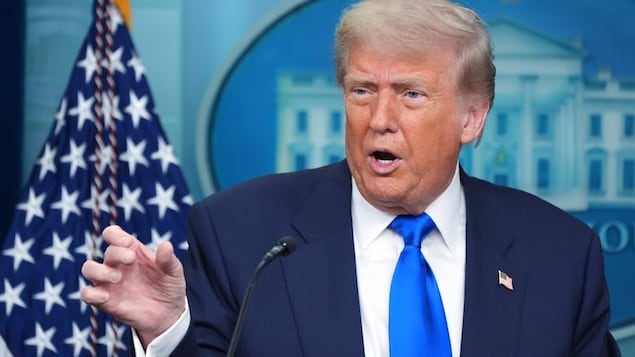Standing outside a manufacturing plant in western Pennsylvania, I watched as workers packed up, uncertain about what tomorrow would bring. The announcement had come just hours earlier – President Trump declared an immediate end to all trade discussions with Canada, sending shock waves through North American markets and diplomatic channels.
“This isn’t just about taxes,” explained Maria Sanchez, a supply chain coordinator at the facility that ships auto parts across the northern border daily. “This is about families on both sides who depend on predictable trade relations.”
The unexpected rupture came after Canada implemented its long-planned Digital Services Tax (DST) on January 1, which targets revenue generated by large tech companies in Canada regardless of whether they have physical operations there. The 3% tax applies to firms with global revenues exceeding €750 million and Canadian digital revenues above $20 million.
President Trump announced via his Truth Social platform: “I am ending all discussions on Trade with Canada, effective immediately.” He characterized the digital tax as “UNFAIR and HIGHLY DISCRIMINATORY against the United States,” claiming it specifically targets American tech giants.
Canadian Prime Minister Justin Trudeau defended the measure during an emergency press conference in Ottawa. “This is about ensuring digital giants pay their fair share, just as Canadian companies do,” Trudeau stated. “Many European nations have implemented similar measures without such extreme responses.”
Speaking with U.S. Trade Representative Katherine Tai in Brussels last week, she had hinted at growing tensions but few anticipated such a dramatic breakdown. “We’ve expressed our concerns through appropriate channels, but unilateral actions undermine the spirit of the USMCA,” Tai had told me.
The International Monetary Fund estimates the Canadian DST could generate approximately $4.2 billion in revenue over five years. However, the economic consequences of disrupted trade talks could far exceed this figure. The U.S.-Canada trading relationship, valued at approximately $614 billion annually according to U.S. Census Bureau data, represents the world’s second-largest bilateral trade partnership.
Financial markets reacted swiftly. The Canadian dollar fell nearly 2% against the U.S. dollar by mid-afternoon trading. Major Canadian exporters saw share prices tumble, with forestry companies and auto parts manufacturers hit particularly hard.
“We’re watching a potential cascading crisis unfold in real-time,” said Dr. Elaine Zhao, international trade economist at Georgetown University. “If this escalates to tariffs or other retaliatory measures, both economies will suffer significant damage.”
Border communities feel particularly vulnerable. In Windsor, Ontario, across from Detroit, nearly 40% of employment depends directly or indirectly on cross-border commerce. “We’re the most integrated border economy in the world,” Mayor Drew Dilkens told me by phone. “People here cross daily for work. Companies have supply chains that zigzag across the border multiple times.”
The dispute centers on a fundamental disagreement about taxing the digital economy. The Organization for Economic Co-operation and Development (OECD) has worked for years to establish a global framework, but progress stalled, prompting Canada and several other nations to implement unilateral measures.
Tech industry representatives have criticized Canada’s approach. “These patchwork national tax regimes create compliance nightmares and ultimately hurt digital innovation,” said Jason Oxman, CEO of the Information Technology Industry Council, whose members include Apple, Google, and Microsoft.
Labour leaders see different stakes. “This isn’t about protecting tech giants,” said Jerry Dias, former president of Unifor, Canada’s largest private-sector union. “This is about using trade as a weapon, and workers become collateral damage.”
Having covered trade tensions across three administrations, this rupture appears particularly dangerous. Unlike previous disputes over softwood lumber or dairy quotas, the digital economy represents the future direction of both economies.
Across the political spectrum, Canadian officials have united in response. Conservative opposition leader Pierre Poilievre, typically critical of Trudeau, stated: “While we may have implemented this differently, Canada has the sovereign right to establish its tax policies.”
The path forward remains unclear. Treasury Secretary Janet Yellen has previously supported OECD-led efforts for a global minimum tax, putting her potentially at odds with the President’s hardline stance.
For communities along the 5,525-mile border, uncertainty prevails. Back in Pennsylvania, plant manager David Kelley surveyed his warehouse. “Thirty percent of what you see here is headed to Canada tomorrow,” he said. “At least, that was the plan this morning.”
As night fell over the manufacturing facility, workers continued loading trucks bound for border crossings, wondering if the barriers to their livelihoods would be economic, political, or physical – and how long they might last.






